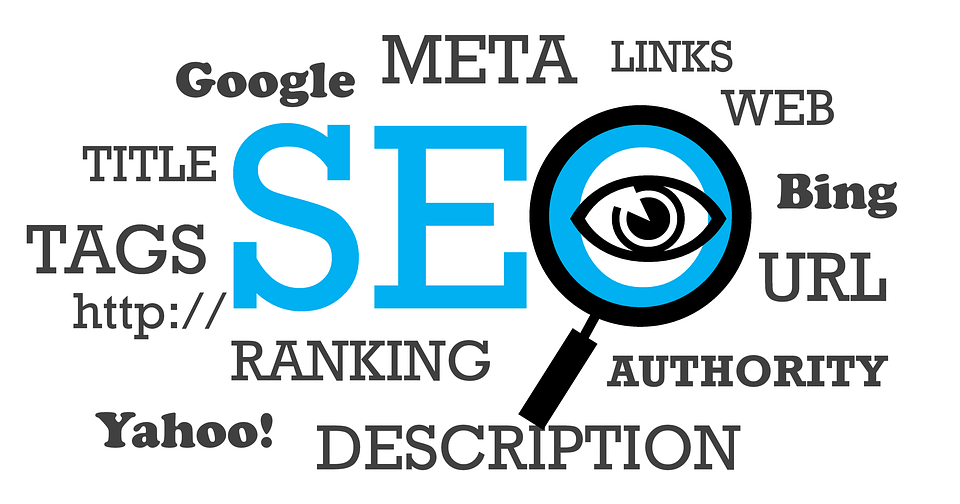Digital Marketing for the Post-Trust Era: Turning Skeptics into Loyal Buyers

We’re living in a time when consumers question everything. From fake reviews to overhyped ads and influencer scandals, trust has become one of the most valuable—and fragile—currencies in business. People don’t just want products anymore; they want proof, transparency, and authenticity. In this post-trust era, digital marketing isn’t about shouting louder than your competitors. It’s about earning belief, one interaction at a time. The brands that succeed are the ones that understand skepticism isn’t an obstacle—it’s an opportunity.
Authenticity Is the New Authority

Polished, corporate messaging doesn’t carry the same weight it once did. Today’s consumers are drawn to brands that feel human. That means sharing real stories, behind-the-scenes content, and even occasional missteps. Authenticity builds relatability, and relatability builds trust. Businesses that partner with a digital marketing agency sunshine coast often focus on crafting messaging that feels genuine rather than overly scripted, helping brands connect with their audience in a way that feels natural and honest. When your marketing sounds like a real conversation instead of a sales pitch, people are more willing to listen. The key is consistency—your tone, visuals, and promises must align across every platform.
Transparency Builds Long-Term Loyalty
Skeptical buyers want to know what they’re signing up for. Hidden fees, vague guarantees, and exaggerated claims are immediate red flags. Transparency in pricing, policies, and processes shows confidence in your offering. If something goes wrong, addressing it openly can actually strengthen customer loyalty. Digital marketing strategies should highlight clarity. Detailed FAQs, upfront explanations, and honest comparisons with competitors help customers feel informed rather than manipulated. When people believe you’re not hiding anything, they’re more likely to stick around.
Content That Educates Instead of Sells
Pushy sales tactics are a fast way to lose credibility. Instead, brands should focus on providing value through educational content. Blog posts, videos, webinars, and guides that solve real problems position your business as a helpful resource rather than just another advertiser. When customers learn something useful from you, they begin to associate your brand with expertise and reliability. Over time, this consistent value builds familiarity—and familiarity reduces skepticism. By prioritizing education over persuasion, you allow buyers to make informed decisions at their own pace.
Social Proof Matters More Than Ever

In a world flooded with advertising, consumers trust other consumers. Reviews, testimonials, and user-generated content carry more weight than brand-created campaigns. Encouraging real customers to share their experiences—good and bad—demonstrates that you value honest feedback. Featuring authentic testimonials on your website and social channels helps bridge the gap between skepticism and confidence. Even negative reviews can be powerful if handled correctly. Responding professionally and resolving concerns publicly shows accountability, which reinforces trust more than a flawless five-star rating ever could.
Personalization Without Being Creepy
Personalization can be powerful, but it needs to be handled carefully. Consumers appreciate relevant recommendations and tailored experiences, yet they’re wary of feeling tracked or exploited. Clear communication about data usage and easy opt-out options are essential. Smart digital marketing balances personalization with respect. Instead of hyper-targeted messaging that feels intrusive, focus on contextual relevance. Segment audiences thoughtfully and deliver content that aligns with their interests without crossing boundaries. When done correctly, personalization feels helpful rather than invasive.
Consistency Across Every Touchpoint
Trust isn’t built in a single campaign. It’s built across every email, social post, landing page, and customer service interaction. If your brand promises premium quality but delivers slow support, skepticism grows. Consistency reinforces credibility. Align your visuals, tone, and messaging across all platforms. Make sure your website reflects the same values you promote on social media. When customers experience a seamless journey, they feel secure in their decision to engage—and eventually purchase.
In the post-trust era, skepticism is the starting point, not the barrier. Brands that embrace transparency, authenticity, and customer-first strategies can transform doubt into loyalty. Digital marketing today is less about clever slogans and more about meaningful connections. When businesses consistently show up with honesty and value, they don’t just win clicks—they earn long-term believers.…













 Before embarking on the journey of selecting a Google Ads agency, it’s crucial to have a clear understanding of your advertising goals and budget constraints. Define the specific objectives you aim to achieve through Google Ads, whether it’s increasing website traffic, generating leads, or boosting sales. Communicate your budget constraints upfront to potential agencies to ensure alignment with your financial parameters.
Before embarking on the journey of selecting a Google Ads agency, it’s crucial to have a clear understanding of your advertising goals and budget constraints. Define the specific objectives you aim to achieve through Google Ads, whether it’s increasing website traffic, generating leads, or boosting sales. Communicate your budget constraints upfront to potential agencies to ensure alignment with your financial parameters. Google Ads success is not a one-time achievement but an ongoing process of optimization and testing. Inquire about the agency’s approach to continuously improving and refining your campaigns. A robust testing strategy for ad copy, keywords, and targeting ensures that your campaigns evolve to deliver optimal results.
Google Ads success is not a one-time achievement but an ongoing process of optimization and testing. Inquire about the agency’s approach to continuously improving and refining your campaigns. A robust testing strategy for ad copy, keywords, and targeting ensures that your campaigns evolve to deliver optimal results.
 The first strategy to improve the quality of your site traffic is to optimize your site content for search engines. Search engines like Google rely on complex algorithms to determine which web pages should appear at the top of search results. To appear higher in search results and get more organic traffic, you must ensure your site’s content is optimized for relevant keywords and follows other SEO best practices.
The first strategy to improve the quality of your site traffic is to optimize your site content for search engines. Search engines like Google rely on complex algorithms to determine which web pages should appear at the top of search results. To appear higher in search results and get more organic traffic, you must ensure your site’s content is optimized for relevant keywords and follows other SEO best practices. Building and nurturing relationships with your audience is crucial to improving the quality of your site traffic. By establishing trust and credibility with your visitors, you can create an engaged community that will visit your website frequently and recommends it to others. To build relationships, you should engage with your
Building and nurturing relationships with your audience is crucial to improving the quality of your site traffic. By establishing trust and credibility with your visitors, you can create an engaged community that will visit your website frequently and recommends it to others. To build relationships, you should engage with your 
 We can’t bring it back to life if you don’t know what’s been wrong with it, right? Start off by running a scan of the website and its content for any errors. Analyze the website in terms of its page structure, page titles, meta descriptions, keyword usage, and content optimization. Our personal recommendation is to use the free SEO tool from Google Search Console for quick and in-depth analysis of various aspects such as links, crawlability, indexing, etc. Alongside that, use other online tools to check if there are any broken links, duplicates, or missing pages.
We can’t bring it back to life if you don’t know what’s been wrong with it, right? Start off by running a scan of the website and its content for any errors. Analyze the website in terms of its page structure, page titles, meta descriptions, keyword usage, and content optimization. Our personal recommendation is to use the free SEO tool from Google Search Console for quick and in-depth analysis of various aspects such as links, crawlability, indexing, etc. Alongside that, use other online tools to check if there are any broken links, duplicates, or missing pages.
 Okay, we’ve covered the design and structure of your old website. Now, let’s get down to the fundamental SEO. This includes optimizing the on-page elements such as title tags, meta descriptions, headers, and content. Ensure each page is properly optimized using relevant keywords and phrases likely to be found in search engine results pages (SERPs). On top of this, you should also consider optimizing images and videos using Alt tags, which is a great way to boost visibility in image-based search.
Okay, we’ve covered the design and structure of your old website. Now, let’s get down to the fundamental SEO. This includes optimizing the on-page elements such as title tags, meta descriptions, headers, and content. Ensure each page is properly optimized using relevant keywords and phrases likely to be found in search engine results pages (SERPs). On top of this, you should also consider optimizing images and videos using Alt tags, which is a great way to boost visibility in image-based search.
 Social media is a great way to reach potential fans and build relationships. You can create a profile on popular social networking sites like Facebook, Twitter, Instagram, and YouTube. Posting content regularly will help keep your fans engaged with your music and increase your brand’s awareness. Additionally, you can use social media for upcoming advertising shows, releases, and promotions.
Social media is a great way to reach potential fans and build relationships. You can create a profile on popular social networking sites like Facebook, Twitter, Instagram, and YouTube. Posting content regularly will help keep your fans engaged with your music and increase your brand’s awareness. Additionally, you can use social media for upcoming advertising shows, releases, and promotions.
 When
When  When it comes to digital marketing, one of the most important factors is the quality of your music. If you’re not putting out high-quality music, no amount of marketing will be able to save you. That’s why investing in professional recording and production is essential, as taking the time to perfect your craft. Additionally, make sure you’re regularly releasing new music. If you only release an album once every few years, it will be hard to keep people’s attention.
When it comes to digital marketing, one of the most important factors is the quality of your music. If you’re not putting out high-quality music, no amount of marketing will be able to save you. That’s why investing in professional recording and production is essential, as taking the time to perfect your craft. Additionally, make sure you’re regularly releasing new music. If you only release an album once every few years, it will be hard to keep people’s attention.
 One of the most important things you can do when link building is to reach out for quality links. It means finding websites relevant to your niche and having high domain authority. If you can get links from these websites, it will do wonders for your SEO efforts. To do so, you need to find the website’s domain authority by using some online tool. Once you’ve found a few websites you want to target, the next step is to reach out to them. The best way to do this is to find the contact information of the website’s owner or editor.
One of the most important things you can do when link building is to reach out for quality links. It means finding websites relevant to your niche and having high domain authority. If you can get links from these websites, it will do wonders for your SEO efforts. To do so, you need to find the website’s domain authority by using some online tool. Once you’ve found a few websites you want to target, the next step is to reach out to them. The best way to do this is to find the contact information of the website’s owner or editor. Although you’ve been careful, there’s always a chance that you’ll come across a broken link. When this happens, don’t panic. There are a few things you can do to deal with it. First of all, you need to identify the broken link. You can do this by using a tool like Google Search Console. Once you’ve found the broken link, you need to reach out to the website owner and let them know. In most cases, they will be happy to fix the link. However, if they don’t, you can always try to find another website that’s willing to link to you. Link building is an integral part of SEO.
Although you’ve been careful, there’s always a chance that you’ll come across a broken link. When this happens, don’t panic. There are a few things you can do to deal with it. First of all, you need to identify the broken link. You can do this by using a tool like Google Search Console. Once you’ve found the broken link, you need to reach out to the website owner and let them know. In most cases, they will be happy to fix the link. However, if they don’t, you can always try to find another website that’s willing to link to you. Link building is an integral part of SEO.
 To increase your ROI, you must understand what appeals to your target audience. What are their needs and wants? What are their pain points? By understanding these things, you will be able to create content and offer services that they will want to purchase. Additionally, you can use this information to create targeted marketing campaigns to reach your target audience more effectively.
To increase your ROI, you must understand what appeals to your target audience. What are their needs and wants? What are their pain points? By understanding these things, you will be able to create content and offer services that they will want to purchase. Additionally, you can use this information to create targeted marketing campaigns to reach your target audience more effectively. Digital marketing is all about endless experiments. Try new things and see what works for your business. There is no one-size-fits-all solution, so you must find what works for you. Additionally, don’t be afraid to fail. Every failure is an opportunity to learn and improve. By experimenting, you will be able to find the most effective ways to market your business and increase your ROI. By following these tips, you will be well on your way to increasing your ROI in this digital era.
Digital marketing is all about endless experiments. Try new things and see what works for your business. There is no one-size-fits-all solution, so you must find what works for you. Additionally, don’t be afraid to fail. Every failure is an opportunity to learn and improve. By experimenting, you will be able to find the most effective ways to market your business and increase your ROI. By following these tips, you will be well on your way to increasing your ROI in this digital era.
 Customer experience is considered the most critical factor in any business. If you want to succeed, you must provide your customers with a positive shopping experience. Using abandoned cart recovery software can help improve this by quickly recovering items they may have forgotten about or didn’t realize were still in their cart. It will lead to increased customer satisfaction and loyalty.
Customer experience is considered the most critical factor in any business. If you want to succeed, you must provide your customers with a positive shopping experience. Using abandoned cart recovery software can help improve this by quickly recovering items they may have forgotten about or didn’t realize were still in their cart. It will lead to increased customer satisfaction and loyalty. Abandoned cart recovery software is an effective way to increase your conversion rates. Some studies have shown that you can recover up to 70% of sales by using this technology! It means more money in your pocket and less time spent on manual follow-ups with customers who may never come back anyways. This way, you can focus on more important things and let the software do its job.
Abandoned cart recovery software is an effective way to increase your conversion rates. Some studies have shown that you can recover up to 70% of sales by using this technology! It means more money in your pocket and less time spent on manual follow-ups with customers who may never come back anyways. This way, you can focus on more important things and let the software do its job.
 Motion graphics help you capture the attention of your audience and keep them engaged with your brand. Motion graphics create a visually appealing design that is sure to be shared on social media platforms, which helps expand SEO reach. Moreover, motion graphics will make your website stand out from the competition and draw more visitors to your site, increasing SEO.
Motion graphics help you capture the attention of your audience and keep them engaged with your brand. Motion graphics create a visually appealing design that is sure to be shared on social media platforms, which helps expand SEO reach. Moreover, motion graphics will make your website stand out from the competition and draw more visitors to your site, increasing SEO. There are many types of motion graphics that you can use on your website, and a professional
There are many types of motion graphics that you can use on your website, and a professional 
 Shopping trends today have changed as compared to earlier years. They have shifted from hopping from one store to another to window shopping and purchasing online. Most people who make a physical visit first check up on different stores on the internet.
Shopping trends today have changed as compared to earlier years. They have shifted from hopping from one store to another to window shopping and purchasing online. Most people who make a physical visit first check up on different stores on the internet. Most people now use their mobile phones to go
Most people now use their mobile phones to go 
 Despite the ever growing popularity of online shopping even before the pandemic, there were still many who preferred going around to buy their needs. Post pandemic, the number must have changed as all must have accustomed themselves buying from online stores at the height of the global health crisis. If you have been in search of a business that has better chances of success, this can be the most appropriate time to learn how to start an online store. Indeed, to be successful in business, it is always best to consider the present situation and determine if the ongoing trends are going to last.
Despite the ever growing popularity of online shopping even before the pandemic, there were still many who preferred going around to buy their needs. Post pandemic, the number must have changed as all must have accustomed themselves buying from online stores at the height of the global health crisis. If you have been in search of a business that has better chances of success, this can be the most appropriate time to learn how to start an online store. Indeed, to be successful in business, it is always best to consider the present situation and determine if the ongoing trends are going to last. With the fast life that we have, finding time to shop around, is always a challenge. E-commerce has given us the opportunity to shop at our most convenient time even at the unholiest hours. This means that online stores can still be doing business while every business out there are resting for the night. Having your own online store will provide you more time to make profits.
With the fast life that we have, finding time to shop around, is always a challenge. E-commerce has given us the opportunity to shop at our most convenient time even at the unholiest hours. This means that online stores can still be doing business while every business out there are resting for the night. Having your own online store will provide you more time to make profits. Putting up a land-based business may require you to have a big amount of money. Many go for loans in order to fill in the gap. In some cases, this may prove to be a bad decision. What if your business does not work? How can you pay your loan? With an online store, you can start with a minimal capital without having to apply for a loan.…
Putting up a land-based business may require you to have a big amount of money. Many go for loans in order to fill in the gap. In some cases, this may prove to be a bad decision. What if your business does not work? How can you pay your loan? With an online store, you can start with a minimal capital without having to apply for a loan.…



 It is crucial to understand that a professional SEO firm will help to enhance your site. Once you hire certified experts, they will take the time to conduct a website audit to determine the right aspects that are interfering with your SEO.
It is crucial to understand that a professional SEO firm will help to enhance your site. Once you hire certified experts, they will take the time to conduct a website audit to determine the right aspects that are interfering with your SEO.

 engine rewards is that the image is tagged. For that, it is best to place a descriptive and flat name that summarizes the image’s attributes. Also, don’t forget to add the alternative attributes or alt attributes of your image. This is an alternative text that allows the search engine to find and describe the image.
engine rewards is that the image is tagged. For that, it is best to place a descriptive and flat name that summarizes the image’s attributes. Also, don’t forget to add the alternative attributes or alt attributes of your image. This is an alternative text that allows the search engine to find and describe the image.
 Twitter makes it effortless to target users by location. You could target people in particular cities, or you could target a metro area.
Twitter makes it effortless to target users by location. You could target people in particular cities, or you could target a metro area. 

 1. Be Social
1. Be Social

 This is an avenue used by many from different corners of the continent and can be very useful. Influencer marketing is another ideal strategy you can try out. Seeking consultancy services before starting your digital marketing campaign is one thing you need to factor in. Here are the benefits of hiring an online marketing consultant.
This is an avenue used by many from different corners of the continent and can be very useful. Influencer marketing is another ideal strategy you can try out. Seeking consultancy services before starting your digital marketing campaign is one thing you need to factor in. Here are the benefits of hiring an online marketing consultant. for your business. What they will do is analyze the state of your company and inform you of the proper online marketing strategies you should implement to get your business going. Such advice will help boost sales in your business and also build your reputation. You should seek consultancy service from these experts to keep your business on the right track.…
for your business. What they will do is analyze the state of your company and inform you of the proper online marketing strategies you should implement to get your business going. Such advice will help boost sales in your business and also build your reputation. You should seek consultancy service from these experts to keep your business on the right track.…


 Unlike SEO company, a business consultant can help you with your business in a different way. They can analyze your business and find out what is wrong and what decision you should make for your business. Again, they do cost money like an SEO company, but in the long run, they’re worth it. The best part about having a business consultant is that they can give you an unbiased opinion about the state of your business and what you can do to fix it.…
Unlike SEO company, a business consultant can help you with your business in a different way. They can analyze your business and find out what is wrong and what decision you should make for your business. Again, they do cost money like an SEO company, but in the long run, they’re worth it. The best part about having a business consultant is that they can give you an unbiased opinion about the state of your business and what you can do to fix it.…
 An SEO company provides search engine optimization to businesses to help them improve the visibility of their brands online. Thus, they are involved in making changes to the design and content of your website to make it easier for search engines to rank your web pages. You should note that a site that is well-optimized for the search engines is likely to rank on first pages of search engine results for phrases and keywords that are relevant to your product or business.
An SEO company provides search engine optimization to businesses to help them improve the visibility of their brands online. Thus, they are involved in making changes to the design and content of your website to make it easier for search engines to rank your web pages. You should note that a site that is well-optimized for the search engines is likely to rank on first pages of search engine results for phrases and keywords that are relevant to your product or business. Other than helping your website rank higher in SERPs, SEO professionals can help you improve the quality of traffic that comes to your site. This is because if you rank for phrases and keywords that are in alignment with your service or product, then the traffic you get to the site is quite relevant. When you increase traffic to the website, you improve the chances of making sales. This is because you get people who come to your site interested in your services or products.
Other than helping your website rank higher in SERPs, SEO professionals can help you improve the quality of traffic that comes to your site. This is because if you rank for phrases and keywords that are in alignment with your service or product, then the traffic you get to the site is quite relevant. When you increase traffic to the website, you improve the chances of making sales. This is because you get people who come to your site interested in your services or products.
 Brand New Ideas
Brand New Ideas Lifetime of Experience
Lifetime of Experience

 If your business is still based on outdated technologies, SEO is all you need to transform your online business into a moneymaking machine. We are in the digital era where everything is taking an online trend. Business has to embrace the technological changes of the day or die. SEO companies ensure that their clients keep abreast of the advancing technology in the business sector. That is why most of them offer routine site audits, advanced e-commerce solutions, and content management solutions, among other technological services.
If your business is still based on outdated technologies, SEO is all you need to transform your online business into a moneymaking machine. We are in the digital era where everything is taking an online trend. Business has to embrace the technological changes of the day or die. SEO companies ensure that their clients keep abreast of the advancing technology in the business sector. That is why most of them offer routine site audits, advanced e-commerce solutions, and content management solutions, among other technological services.


 …
…
 People are on social media networks to interact. As they do so, they talk about the things they like and the things they wished they had. A business using social media marketing is also on social networks to socialize. It is not there primarily to sell products to other users. Selling of products only becomes an automatic consequence of engaging with other social media network users. As fans interact on the official social network page of your business, they share their experiences, likes and dislikes about your products. They can provide honest reviews of your products for other people to see. These reviews go a long way in promoting your brand. As discussions on your products continue, other social media users get to know about them and make inquiries. This leads to brand awareness and brand loyalty.
People are on social media networks to interact. As they do so, they talk about the things they like and the things they wished they had. A business using social media marketing is also on social networks to socialize. It is not there primarily to sell products to other users. Selling of products only becomes an automatic consequence of engaging with other social media network users. As fans interact on the official social network page of your business, they share their experiences, likes and dislikes about your products. They can provide honest reviews of your products for other people to see. These reviews go a long way in promoting your brand. As discussions on your products continue, other social media users get to know about them and make inquiries. This leads to brand awareness and brand loyalty. Influencer marketing can be defined as a form of marketing where the focus of the entire marketing campaign is placed on some specific individual as opposed to targeting the entire market as a whole. Here all a business entity needs to do is identify a particular individual who has the power to influence potential buyers and hence project the market activities around such individuals.
Influencer marketing can be defined as a form of marketing where the focus of the entire marketing campaign is placed on some specific individual as opposed to targeting the entire market as a whole. Here all a business entity needs to do is identify a particular individual who has the power to influence potential buyers and hence project the market activities around such individuals.






